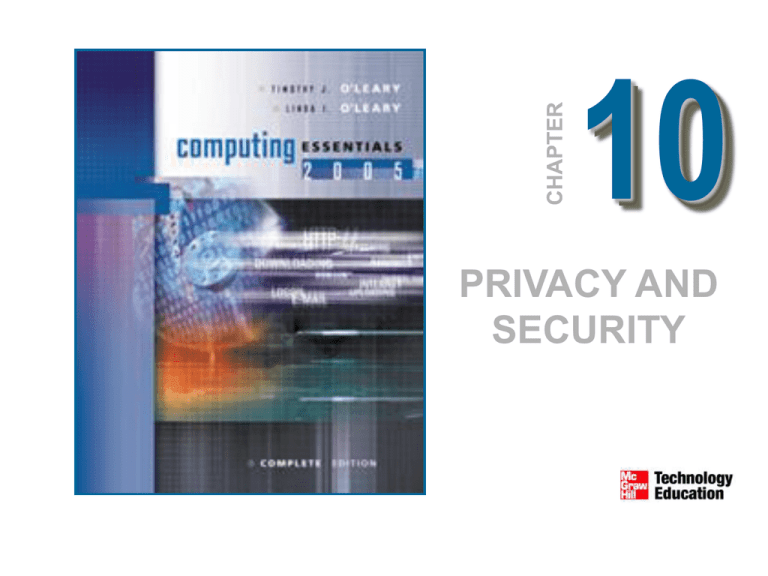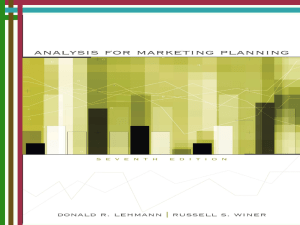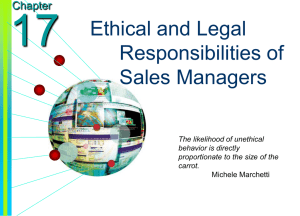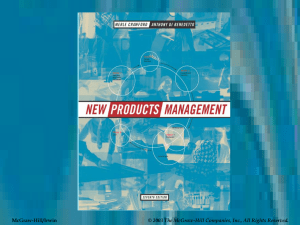
10
PRIVACY AND
SECURITY
10-2
Competencies
Describe concerns associated with computer
technology
Discuss computer ethics
Discuss privacy issues
Describe the security threat posed by computer
criminals, computer crime, and other hazards
© 2005 The McGraw-Hill Companies, Inc. All Rights Reserved.
10-3
Competencies cont.
Discuss ways to protect security
Describe common types of risks associated with
computers
Discuss what the computer industry is doing,
and what you can do to protect the environment
© 2005 The McGraw-Hill Companies, Inc. All Rights Reserved.
10-4
Information System Concerns
Privacy
Security
Ergonomics
Environment
© 2005 The McGraw-Hill Companies, Inc. All Rights Reserved.
10-5
Privacy
Computer ethics provide guidelines for computer
use
Ethics issues
Privacy
Accuracy
Property
Access
© 2005 The McGraw-Hill Companies, Inc. All Rights Reserved.
10-6
Large Databases
Data collected daily
Data gatherers
Information resellers or information brokers
Information profiles are created
Concerns
Identify theft
Mistaken identity
© 2005 The McGraw-Hill Companies, Inc. All Rights Reserved.
10-7
Private Networks
Employers monitor email
Legally done
Snoopware Software
Online services right to
censor content
Screen and reject
messages
Terminate user accounts
© 2005 The McGraw-Hill Companies, Inc. All Rights Reserved.
10-8
Internet and Web
Illusion of anonymity
Not concerned about privacy when surfing the
Internet
Not concerned about privacy when sending e-mail
History file
Cookies
Traditional
Ad network or adware cookies
© 2005 The McGraw-Hill Companies, Inc. All Rights Reserved.
10-10
Computer Criminals
Employees
Outside users
Hackers and crackers
Organized crime
Terrorists
© 2005 The McGraw-Hill Companies, Inc. All Rights Reserved.
10-11
Computer Crime
Malicious Programs
Viruses
Worms
Trojan horse
Denial of service (DoS)
Internet Scams
Theft
Hardware or software
Data
Computer time
Data Manipulation
Computer Fraud and
Abuse Act of 1986
© 2005 The McGraw-Hill Companies, Inc. All Rights Reserved.
10-12
Other Hazards
Natural hazards
Fires & floods
Winds
Hurricanes
Tornadoes
Earthquakes
Technological failures
Voltage surge
Surge protector
Human errors
Civil strife and terrorism
Wars
Riots
Terrorist acts
© 2005 The McGraw-Hill Companies, Inc. All Rights Reserved.
10-13
Measures to Protect Computer
Security
Encrypting messages
Restricting access
Anticipating disasters
Backing up data
Encrypted e-mail
© 2005 The McGraw-Hill Companies, Inc. All Rights Reserved.
10-14
Restricting Access
Biometric scanning
Fingerprint scanners
Retinal (eye) scanners
Assigning passwords
Firewalls
Special hardware and software
Controls access to internal networks
© 2005 The McGraw-Hill Companies, Inc. All Rights Reserved.
10-15
Ergonomics
© 2005 The McGraw-Hill Companies, Inc. All Rights Reserved.
10-16
Ergonomics
Study of human factors related to things people
use
Physical Health
Eyestrain and headache
Back and neck pain
Repetitive strain injury
© 2005 The McGraw-Hill Companies, Inc. All Rights Reserved.
10-17
More on Ergonomics
Mental Health
Noise
Electronic monitoring
Technostress
Stress associated
with computer use
Harmful to people
© 2005 The McGraw-Hill Companies, Inc. All Rights Reserved.
10-18
The Environment
© 2005 The McGraw-Hill Companies, Inc. All Rights Reserved.
10-19
Personal Responsibility
Conserve
Recycle
Educate
© 2005 The McGraw-Hill Companies, Inc. All Rights Reserved.
10-20
A Look to the Future
Presence Technology
Presence technology alerts you that someone is
trying to reach you
People can locate you
People can tell
which device is
best to contact you
Could become a standard feature of new cars,
phones, and appliances
© 2005 The McGraw-Hill Companies, Inc. All Rights Reserved.
10-21
Key Terms
access (269)
accuracy (269)
ad network cookie (272)
adware cookie (272)
biometric scanning (280)
carpal tunnel syndrome
(284)
chlorofluorocarbons
(CFCs) (286)
Code of Fair Information
Practice (273)
cold site (281)
Computer Abuse
Amendments Act of 1994
(277)
computer crime (276)
computer ethics (269)
Computer Fraud and
Abuse Act of 1986 (279)
cookie (272)
© 2005 The McGraw-Hill Companies, Inc. All Rights Reserved.
10-22
Key Terms
cookie-cutter program
(272)
Cracker (277)
cumulative trauma
disorder (283)
data security (281)
Denial of service attack
(DoS) (278)
disaster recovery plan
(281)
electronic monitoring
(284)
electronic profile (270)
Encrypting (280)
Energy Star (285)
ergonomics (282)
ethics (269)
firewall (280)
Freedom of Information
Act (271)
© 2005 The McGraw-Hill Companies, Inc. All Rights Reserved.
10-23
Key Terms
Green PC (285)
hacker (277)
history file (272)
hot site (281)
identity theft (270)
illusion of anonymity
(272)
information brokers
(270)
information resellers
(270)
Internet scam (278)
mistaken identity (271)
password (280)
physical security (281)
privacy (269)
property (269)
repetitive motion injury
(283)
© 2005 The McGraw-Hill Companies, Inc. All Rights Reserved.
10-24
Key Terms
repetitive strain injury
(RSI) (283)
scam (278)
security (289)
snoopware (271)
Software Copyright Act
of 1980 (278)
software piracy (278)
spike (279)
spyware (272)
surge protector (279)
technostress (284)
traditional cookie (272)
Trojan horse (278)
virus (277)
virus checker (278)
voltage surge (279)
worm (277)
© 2005 The McGraw-Hill Companies, Inc. All Rights Reserved.
10-25
FAQs
What is identity theft?
How does snoopware work?
I keep getting a lot of ads on my computer. What
is spyware?
What is the difference between hackers and
crackers?
My back hurts every time I sit in front of my
computer. What can I do?
© 2005 The McGraw-Hill Companies, Inc. All Rights Reserved.
10-26
Discussion Questions
Explain how access can be restricted to a
computer.
Discuss the various malicious programs that can
attack a computer system.
What can you do to protect your privacy while
on the Web?
Do you feel that the Code of Fair Information
Practice should be made into an enforceable
law? Discuss your views.
© 2005 The McGraw-Hill Companies, Inc. All Rights Reserved.





